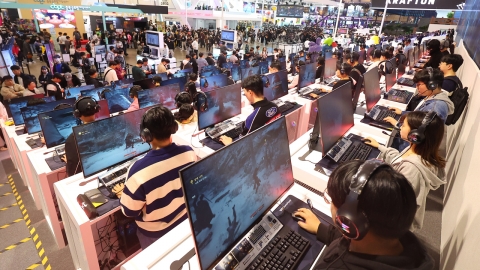■ Telephone connection: Kim Dae-ho, Director of Global Economic Research Institute
* The text below may differ from the actual broadcast content, so please check the broadcast for more accurate information. Please specify [YTN Newswide] when quoting..
[Anchor]
Since Trump was elected in the U.S. presidential election, our economy has fluctuated greatly. The Korean stock market, including the KOSPI, is plunging, and the exchange rate has soared to the 1,400 won range. Let's connect Kim Dae-ho, head of the Global Economic Research Institute, to hear more about our economy and how it will flow in the future due to the rapidly changing global environment. How are you, warden?
[Daeho Kim]
Nice to meet you.
[Anchor]
Let's start with the won-dollar exchange rate. Since the election of former President Trump, the exchange rate has soared to the 1,400 won range. Please explain why the exchange rate is rising so much.
[Daeho Kim]
How much do we have to pay when we change the exchange rate of our country, that is, the dollar? The exchange rate between international currencies is often referred to as the exchange rate. Isn't it November 5th that Trump's election was confirmed? Since then, Korea's exchange rate has been rising significantly. To say that the exchange rate is rising means that the value of Korea's money is falling.
This is not because there is anything wrong with the Korean economy, but because the dollar is expected to rise significantly in the U.S. economy, the value of Korea's money, which is inversely proportional to the dollar, has fallen. During the IMF financial crisis or the global financial crisis, there was a theory that 1400 won was the so-called 1400 won that the Korean economy would collapse if the exchange rate rose.
However, it can be said that the situation was that serious because the Korean economy was bad at that time. Now, the Korean economy is not bad, but as the U.S. unilaterally moves its way and the world's money to the U.S., the dollar strengthens and the Korean won's exchange rate rises, so a sharp rise in the exchange rate does not immediately shake the Korean economy, but a sharp rise in the exchange rate will lead to a rise in import prices.
Also, foreign funds will not come into Korea. As a result, various international economic environments that have been hit by our stock market are changing rapidly after President Trump's election.
[Anchor]
So, you explained that in the long run, we could also be affected by the impact of the dollar's ultra-strong influence, but in the meantime, the U.S. Treasury Department has designated Korea as a currency observation target again. This was re-designated a year after it was excluded from the exchange rate observation in November last year. How should I interpret this?
[Daeho Kim]
The exchange rate monitoring system implemented by the United States is that other countries trading with the United States are manipulating exchange rates to further increase their trade surplus or current account surplus. The country suspected of manipulation is designated as a so-called exchange rate observation country. Until last year, China, Japan, Singapore, Taiwan, Vietnam, Germany, these six countries had a lot of surpluses in the United States. We designated these six countries as observation targets, but we added Korea this time.
As a result, seven countries have become exchange rate observers because Korea's surplus with the United States has increased a lot recently. This is a big aspect of directly returning what we indirectly exported to China to the United States while de-China, and as Korea-U.S. economic and trade relations became strong during the Biden administration, Korean products were exported to the United States a lot. However, there are so many exports to the United States, so if you are designated as a country subject to exchange rate observation, you will be a little tired in the future.
Specifically, is Korea manipulating the exchange rate? The condition is checked every day, and if it is determined that it is being manipulated, the U.S. may force Korea's exchange rate to put pressure on it. A country that is being observed is literally a country that is being observed, and the higher the level, the higher the level, the higher the tariff bomb or the order to intervene in exchange rate adjustment, but it hasn't gone that far yet.
So when President Trump comes in, it's especially President Trump's economic philosophy. The U.S. trade surplus needs to be increased. From this point of view, the exchange rate observation target is a country that sees a lot of surpluses in the United States, so it can be seen as a declaration of war that we will focus on China, Japan, Singapore, Taiwan, Vietnam, Germany, and other countries, including Korea, as soon as President Trump comes in.
[Anchor]
However, in this situation, there was also news that Trump would abolish the electric vehicle tax credit under the Inflation Reduction Act (IRA). What's the background of this?
[Daeho Kim]
He made a good point. This is the biggest blow to the Korean economy. During the Biden administration, the IRA law was implemented as the Inflation Reduction Act. In short, that's up to $7500 for electric vehicle batteries that the government finances to build an electric vehicle or battery factory in the United States or produce and sell to consumers in Made-in America. So it's about 10 million won in our money.
So, if you buy a Hyundai electric car in the United States, the government will cut taxes by 10 million won. It's a huge benefit. In fact, because of this, modern electric cars in Korea sold well in the United States. President Trump says this only eats away at American taxes and doesn't work. So, as soon as he took office, he pledged to completely abolish the IRA tax credit system, but Reuters recently confirmed once again that it will be eliminated as soon as he takes office.
As a result, the stock price related to electric vehicle batteries has dropped and is quite shocked. In Korea, many factories are currently building in the United States to receive subsidies such as IRA tax credits for electric vehicles and batteries. It costs a lot of money to build a factory, but I got a tax subsidy from the United States to cover it.If the subsidy is abolished, sales of electric vehicle batteries will decrease, and the burden of building factories in the United States will increase significantly, which is expected to be a significant negative factor.
[Anchor]
You said that it hurts the Korean economy and especially affects the electric vehicle and battery industry, so we will wait and see. This time, we will also look at virtual currency. Bitcoin had surged since Trump's election and then plunged due to comments by Fed Chairman Powell. But it's rising as it topped $90,000 again, right?
[Daeho Kim]
That's right. In short, President-elect Trump has declared that if he becomes the president of the United States during this election, he will become the president of virtual currency. In addition, he himself bought a huge amount of virtual currency such as Bitcoin Ethereum. As a result, there are expectations that the market price of virtual currency will rise if Trump is elected. This worked a lot.
5000 dollars, 6000 dollars at one time. Bitcoin, which had been quite low, is now almost $90,000, so it's almost doubled in the last 10 days or so. It's not just bitcoin. Ethereum, Ripple. In the case of Ripple, it went up a lot. Moreover, the people who are close to President Trump and the people who gave political donations to President Trump are the big hands of virtual currency.
That's why it won't go up. However, Fed Chairman Jerome Powell will speed up the rate cut. If interest rates are cut quickly, there is less interest in the financial market, so the money has also gone to Bitcoin, and Fed Chairman Jerome Powell will not rush to speed up the rate cut. This is why I got a little adjusted. Of course, however, the virtual currency market is likely to fluctuate considerably for the time being as President Trump's virtual currency float policy is being eaten much more than Jerome Powell's rate cut.
[Anchor]
Finally, let's take a look at our stock market as well. In particular, Samsung Electronics fell to 40,000 electrons and managed to recover 50,000 electrons. There was also an announcement that a total of 10 trillion won worth of treasury stocks would be purchased, so please briefly explain the background of this.
[Daeho Kim]
Samsung Electronics is very difficult these days. In particular, the stock price has fallen a lot. Didn't it go up to 100,000 won now to 50,000 won or 40,000 won? So Samsung Electronics will buy 10 trillion won of its own shares last weekend. He says he'll buy his shares with his own money. So, in this case, the price is determined by supply and demand, and when you buy your own stock, the supply to the market decreases and the price goes up.
That's how serious Samsung Electronics is now seeing its stock price fall. Of course, it's effective in the longer term.E, however, in order for Samsung Electronics to really stabilize its stock price in the mid- to long-term, it seems that there needs to be a clear restructuring or a new vision, especially for system semiconductors.
[Anchor]
I see. That's all for today. Kim Dae-ho was the director of the Global Economic Research Institute. Thank you for talking today, director.
※ 'Your report becomes news'
[Kakao Talk] YTN Search and Add Channel
[Phone] 02-398-8585
[Mail] social@ytn.co.kr
[Copyright holder (c) YTN Unauthorized reproduction, redistribution and use of AI data prohibited]
Economy
More- More than 60% of cabbage...The distributor said, "Catch the Kimjang people and the Kimpo people!"
- 63% of cabbage prices in a month... "Ttuk".The distributor said, "Catch the Kimjang people and the Kimpo people!"
- Low tax burden young people...Low birth rate needs a structural approach rather than tax support"
- Financial Supervisory Service Calls Banks Due to Surging Exchange Rate...foreign exchange risk check


![[Weather] "Experience the extreme?" 10℃ "Duk"...First sub-zero temperatures in Seoul this week.](https://image.ytn.co.kr/general/jpg/2024/1117/202411171242491700_h.jpg)

![[Yeterview] Choi Hye-sun "The opposite of 'Bloody Game' and 'Solo Hell'..."I'm looking forward to your new side".](https://image.ytn.co.kr/general/jpg/2024/1116/202411161109572531_h.jpg)



![[G-Star 2024] HiveIM's first outing raises expectations for new works](https://image.ytn.co.kr/general/jpg/2024/1115/202411151733271198_h.jpg)
![[G-Star 2024] Gravity, Main IP 'Ragnarok 3', etc. will be released for the first time.](https://image.ytn.co.kr/general/jpg/2024/1115/202411151613167158_h.jpg)